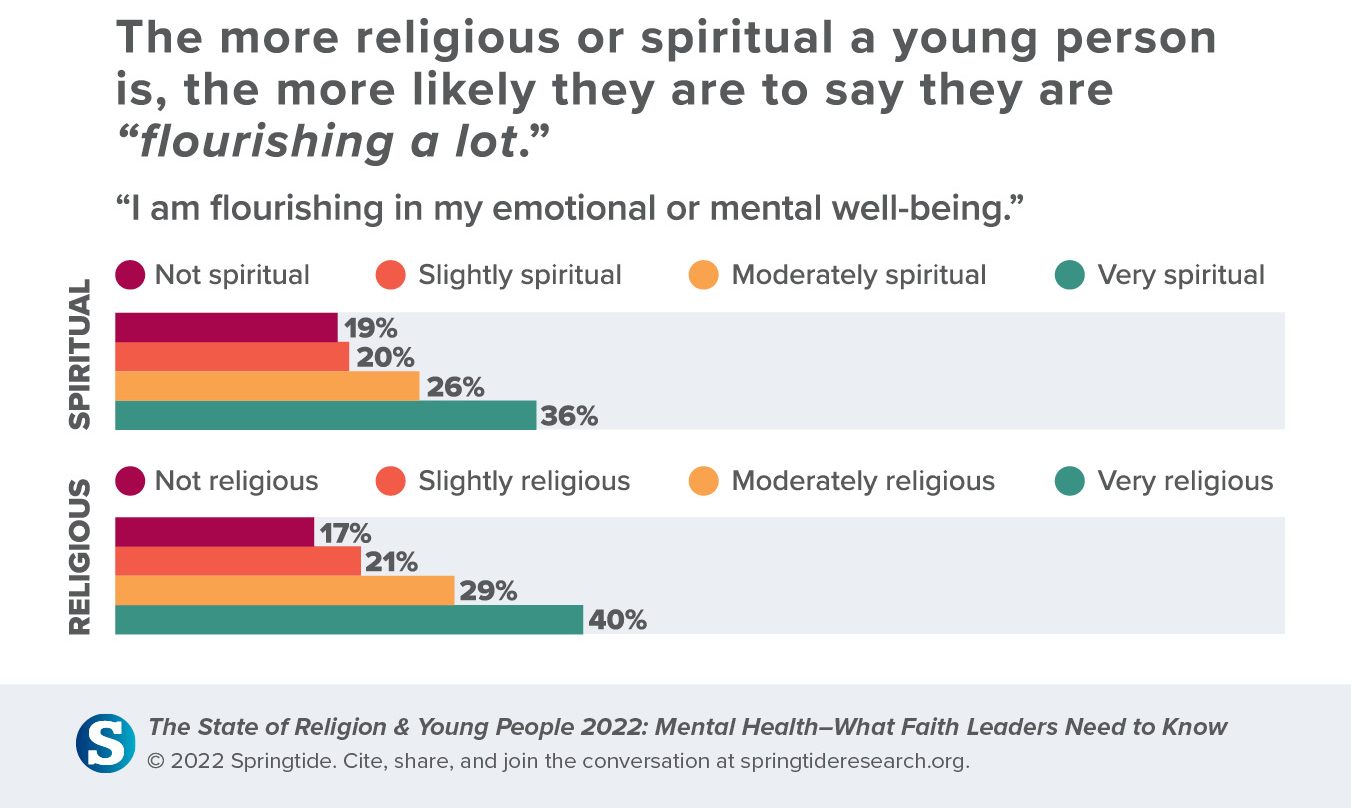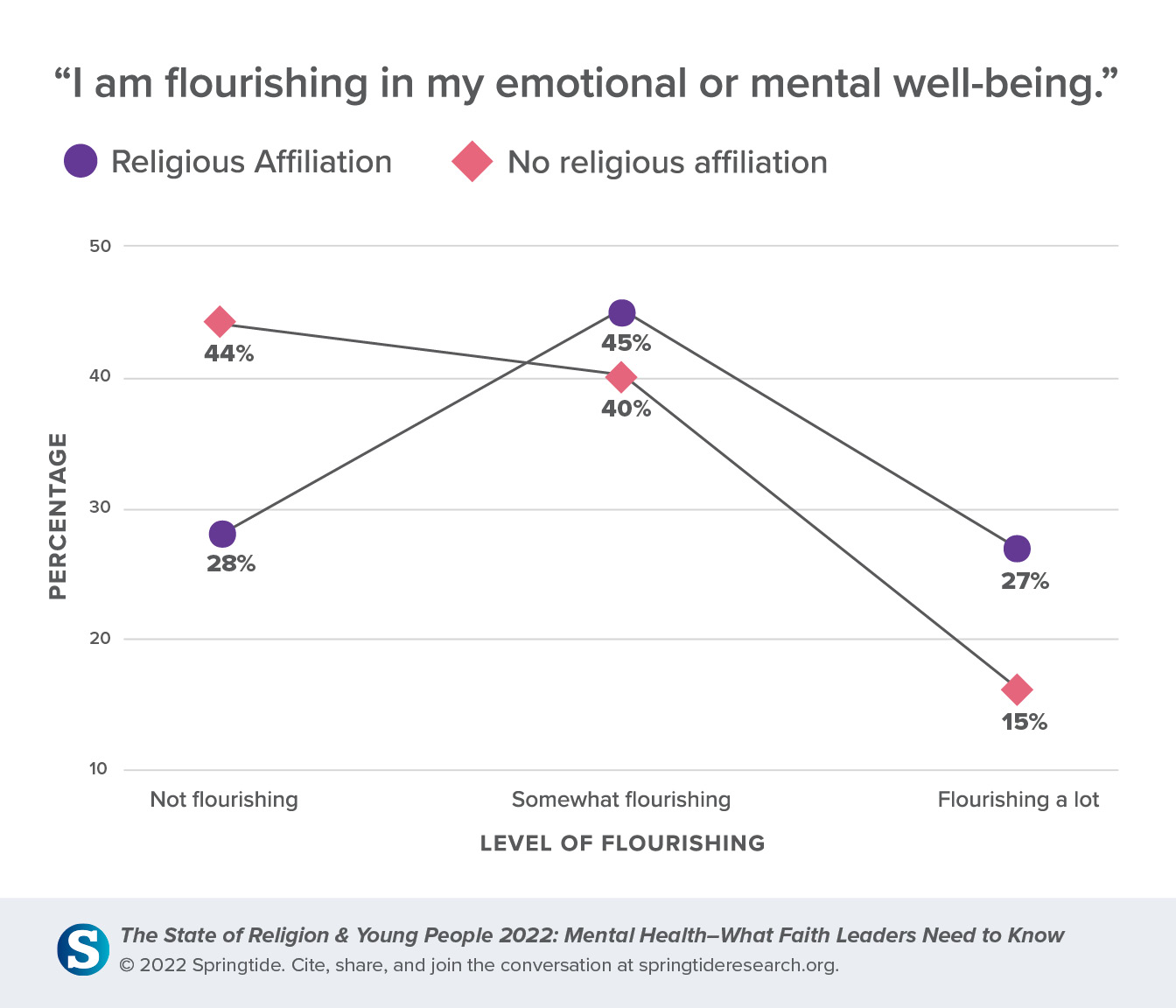3 things that support Gen Z mental health
When Springtide collected data at the two-year mark of the pandemic, nearly half of the young people (47%) we surveyed said that they were moderately or extremely depressed, while over half of young people said they were moderately or extremely anxious (55%) or moderately or extremely stressed (57%). As we move toward the end of 2022, more young people may struggle with their mental health as they feel the stressors of family dynamics, school pressures or having to plan for the future. Here’s three things that can support mental health for Gen Z:
-
Conversations with friends.
Largely, young people say that they prefer talking with their friends about their mental health, rather than adults. Especially since they are close in age, they feel that they can more easily relate to their peers, which helps them feel safe and comfortable opening up.
“I would say typically I feel more comfortable talking to my friends first if I’m like really upset and then normally they can almost like talk me out of it, but I prefer going to my friend because I feel like they can almost relate to me on a closer level since we’re similar in age. And we’re experiencing the same things right now. But if I did need to go to an adult, I would probably still confide in a friend first and almost see if that friend would come with me if I went to the adult.”
—Misty, 17
-
Religious and spiritual belief and practice.
Springtide data show the more religious or spiritual a young person is, the more likely they are to say they’re flourishing in their mental and emotional health.

And while many young people don’t attend religious services, they engage in traditional practices such as prayer, or less traditional practices such as art, meditation, being in nature, journaling, volunteering, connecting with ancestors and several others. Young people we interviewed say that undertaking these practices can be helpful for mental health.

“When I go for walks and see dogs…or just like being able to appreciate the world outside of what’s going on in my personal life, (that helps). Just like seeing a sunset (reminds me) not everything is all bad. When I’m sitting in my room and I get anxious or really focused on one thing, it’s like, what’s the point of everything, what am I doing? And then I go outside and (remember) it’s not that serious.”
—Rose, 16
-
Hitting ‘unsubscribe’ on grind culture.
The pressure to succeed in the ways society and family expects weighs heavily on Gen Z. Many of the young people we interviewed spoke about all the expectations they may face in a given day, and how over time, it can take a real toll on mental health. During a focus group with ninth grade students, one of the top three things they named as stressors was “harsh expectations” and how “you feel like you are regressing instead of going forward, like you are staying in one place and not getting anywhere”, even when they are self-imposed. One of the participants said:
“Being hardworking is really great, but hustle culture can be very toxic. So just letting folks know that we don’t always have to be on grind mode all the time… that’s something that’s helped me with my mental health – knowing that I don’t need to like overwork myself because burnout is really real.”






